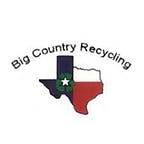What to Know When Recycling Brass
Introduction:
Brass, a versatile alloy made primarily of copper and zinc, finds its way into various everyday items, from plumbing fixtures to musical instruments. With its durability and aesthetic appeal, brass holds significant value in recycling efforts. If you’re considering recycling brass, here’s what you need to know to do it effectively and responsibly.
what is brass?
Brass is a metallic alloy composed primarily of copper and zinc, often with varying proportions of other elements such as lead or tin. It is known for its gold-like appearance and is widely used in applications ranging from musical instruments to plumbing fixtures due to its corrosion resistance, malleability, and acoustic properties.
Understanding Brass Composition
Before delving into brass recycling, understanding its composition is crucial. Brass typically consists of around 60–70% copper and 30–40% zinc. Sometimes, other elements like lead, tin, or aluminum are added to enhance specific properties. Knowing these constituents helps in sorting and processing brass effectively during recycling.
Should You Recycle Your Brass? What you need to know
Yes, recycling brass is highly beneficial for both environmental and economic reasons. Brass is a valuable metal alloy commonly used in various industries, including plumbing, electronics, and construction. Recycling brass reduces the need for raw material extraction, conserves energy, and minimizes landfill waste. Additionally, recycling brass can generate revenue through scrap metal sales. It’s essential to separate brass from other materials properly and find a reputable recycling facility to ensure it’s recycled efficiently and responsibly.
The Value of Brass
The value of brass lies in its versatility, durability, and aesthetic appeal. This alloy of copper and zinc is prized for its corrosion resistance, making it ideal for various applications ranging from musical instruments and plumbing fixtures to decorative items and ammunition casings. Its unique blend of properties, including malleability and acoustic qualities, contributes to its enduring popularity across industries, ensuring that brass remains a valuable material in manufacturing and craftsmanship.
How to Recycle Brass
1-Collection:
Collect brass items from your home, workplace, or community. Common items include plumbing fixtures, musical instruments, keys, and electrical components.
2-Sorting:
Sort brass items from other materials like steel, aluminum, and plastic. Clean the brass to remove dirt, paint, or other contaminants, as these can affect the recycling process.
3-Find a Reliable Recycler:
Choose a reputable recycling company that specializes in brass recycling. Look for facilities equipped with proper sorting and processing technologies to ensure efficient and environmentally friendly recycling.
Understanding Brass Recycling
1-Brass Composition:
Brass is a non-ferrous metal, which means it doesn’t contain iron. Its composition primarily consists of copper and zinc, with varying proportions depending on the type of brass.
2-Types of Brass:
Brass comes in many forms, such as pipes, fittings, fixtures, and decorative items. Each type may have different recycling processes due to variations in composition and contaminants.
3- Benefits of Recycling Brass:
Recycling brass reduces the need for mining raw materials, conserves energy, and minimizes environmental pollution associated with brass production.
Introducing Big Country Recycling
When it comes to brass recycling services, Big Country Recycling stands out as a trusted partner. With years of experience in the recycling industry, they offer comprehensive brass recycling solutions tailored to your needs.
Why Choose Big Country Recycling?
Expertise:
Big Country Recycling has extensive knowledge and expertise in handling various types of brass, ensuring optimal recycling outcomes.
State-of-the-Art Facilities:
Equipped with advanced technology and equipment, their facilities adhere to the highest environmental and safety standards.
Efficient Process:
Their streamlined process ensures quick and efficient brass recycling, minimizing turnaround time and maximizing convenience for customers.
Environmental Commitment:
Big Country Recycling is committed to sustainable practices, prioritizing resource conservation and pollution prevention in every step of the recycling process.
Conclusion
In conclusion, brass recycling is a simple yet impactful way to reduce waste and promote sustainability. By understanding the basics of brass recycling and partnering with reputable recyclers like Big Country Recycling, you can make a positive difference for the environment while also benefiting economically. Make the choice to recycle brass today and be a part of the solution for a cleaner, healthier planet. Contact them today to learn more about their Brass Recycling service San Angelo or to get a quote for your materials. Or call +1 325–949–5865.
